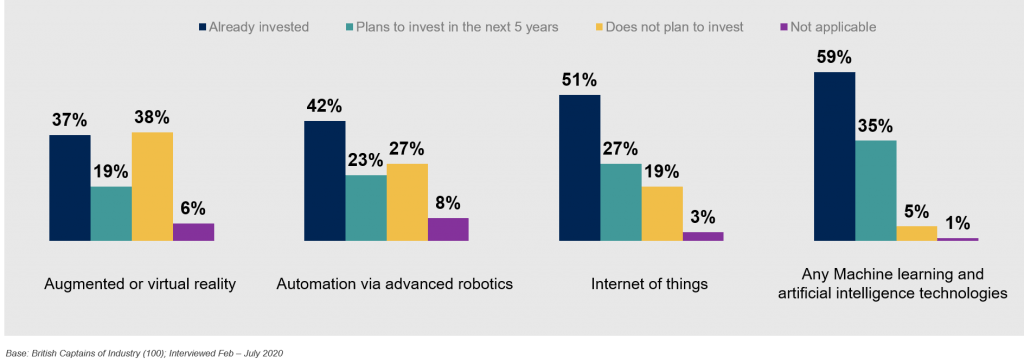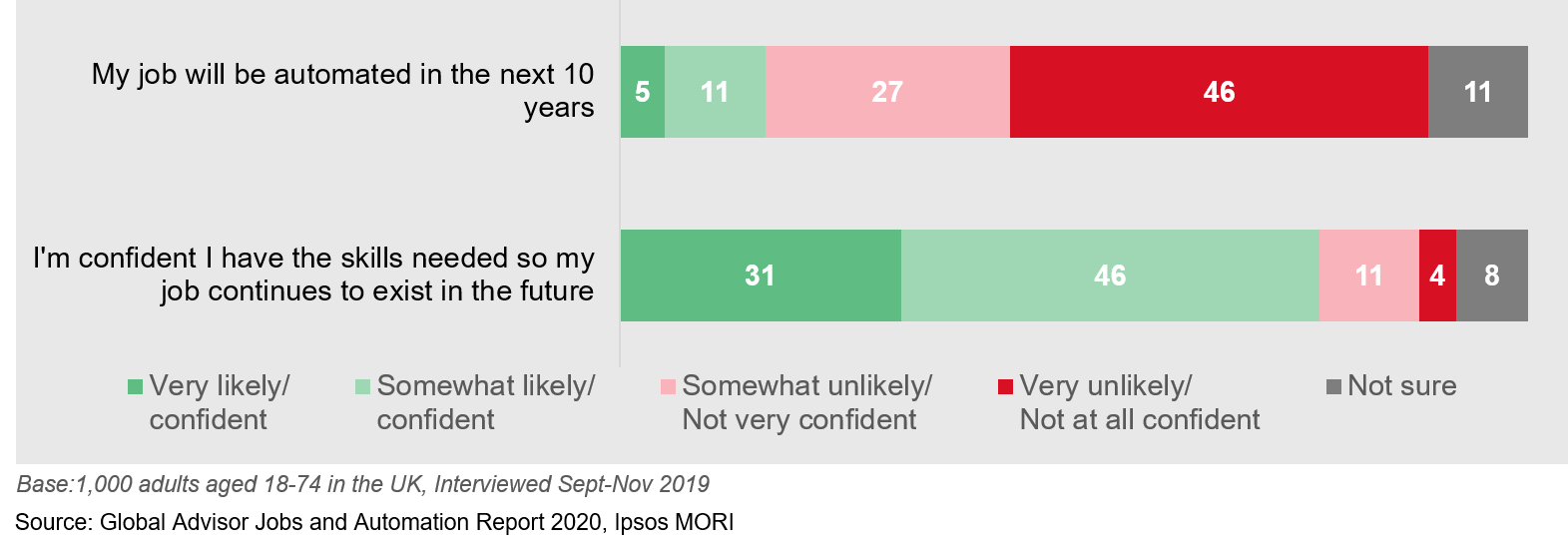The AI paradox: businesses must not overlook their responsibility to reputation as investment in this technology grows
According to a 2017 PwC report, AI technology could deliver a 10% increase in the UK’s GDP by 2030, provided that different types of AI technologies are invested in. To nurture this potential, in early March the government outlined a plan to position the UK as the global leader of artificial intelligence. The plan incorporates investing in R&D, helping people develop skills for the new age of AI, and supporting sectors in boosting their use of AI and data analytics technologies. The hope is to create resilience among the UK’s workforce as the use of AI becomes widespread across sectors and helps boost the economy.
The indication that AI is the future is evident among business leaders too. In a recent study by Ipsos, the authoritative Captains of Industry, three in five stated they have already invested in digital technologies such as machine learning and artificial intelligence. Another third plan to invest in the next five years, as businesses prepare for the utilisation of AI technologies, align with government priorities, and foster the potential for economic growth – especially in a post-pandemic world.
 However, while the benefits that could be reaped from digital technologies are limitless, it doesn’t come without its challenges. In an Ipsos poll published by the World Economic Forum, four in ten adults across the world said they are worried about the use of artificial intelligence, and nearly half of adults globally agree that the use of AI by companies should be regulated more strictly than it currently is. In another poll, less than one in five adults in the UK believe their job will be automated in the next 10 years, and almost four in five feel confident they already have the skills to carry on with their current employment in the future – contrasting senior leaders’ perspective of digital technologies potential.
However, while the benefits that could be reaped from digital technologies are limitless, it doesn’t come without its challenges. In an Ipsos poll published by the World Economic Forum, four in ten adults across the world said they are worried about the use of artificial intelligence, and nearly half of adults globally agree that the use of AI by companies should be regulated more strictly than it currently is. In another poll, less than one in five adults in the UK believe their job will be automated in the next 10 years, and almost four in five feel confident they already have the skills to carry on with their current employment in the future – contrasting senior leaders’ perspective of digital technologies potential.
 While government and businesses are working toward unlocking AI’s potential, efforts will need to be put in place to convince employees of AI’s positive societal impact, the need for upskilling, and the benefits it could bring to jobs in the UK. Uplifting the reputation of AI and automation will need to be at the forefront of the government’s transformational strategy – especially as trust in the sector hit an all-time low in 2020, according to the Edelman Trust Barometer.
While government and businesses are working toward unlocking AI’s potential, efforts will need to be put in place to convince employees of AI’s positive societal impact, the need for upskilling, and the benefits it could bring to jobs in the UK. Uplifting the reputation of AI and automation will need to be at the forefront of the government’s transformational strategy – especially as trust in the sector hit an all-time low in 2020, according to the Edelman Trust Barometer.
Companies such as Microsoft have already taken some steps toward convincing the public in their efforts toward responsible technology by publishing six ethical principles to guide the development and use of artificial intelligence, with focus on working closely with employees and teams across the company to enable this effort. The government is also taking steps on this by launching an independent Centre for Data Ethics and Innovation that will advise on the ethical use of data, ranging from evaluating its social and economic impacts through to its fair and responsible application across businesses.
These efforts are a step in the right direction. Digital technologies are notorious for their fast evolution, with policies and regulations coming too late to resolve issues that have already left a negative mark on society and employment. Governments, businesses, and industry experts will need to work coherently and transparently when implementing AI, and work toward foreseeing issues with its implementation before they happen.
Building trust with the public will be key, alongside convincing the UK workforce of the benefits for upskilling, with a focus on fully communicating how utilising digital technologies would affect society and employment, both positively and negatively. Turning the UK into a global AI leader will be a challenging endeavour, but as long as we remember that having the capability to create technology is not all it takes for its success, realising all of its social and economic benefits are very much within our grasp.

![[Webinar] KEYS: What can we learn from what happened in 2025?](/sites/default/files/styles/list_item_image/public/ct/event/2025-12/keys-webinar-what-happened-in-2025-carousel.webp?itok=1gJKCCxx)
![[Webinar] KEYS: THE MIDDLE CLASS: In Crisis?](/sites/default/files/styles/list_item_image/public/ct/event/2025-10/middle-class-family-dinner-food-carousel.webp?itok=iD1QyX8n)
![[Webinar] KEYS: Global Trends - The Uneasy Decade](/sites/default/files/styles/list_item_image/public/2025-09/image/minisite/keys0925.png?itok=3oAiYcxm)